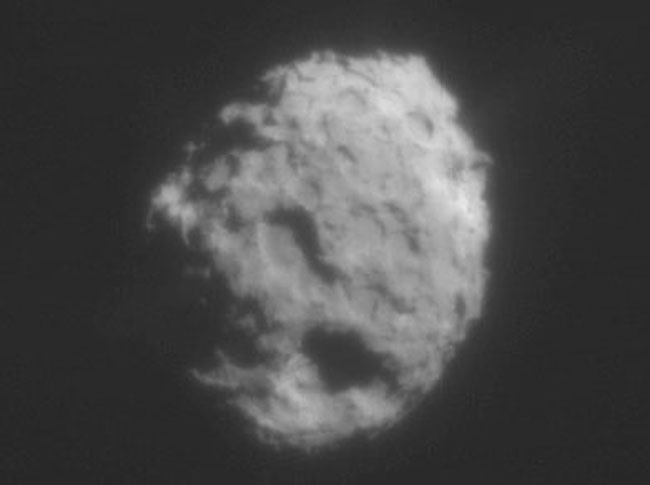Comet Wild 2s Nucleus from Stardust

Explanation:
What does a comet nucleus look like?
Yesterday the
robot spacecraft Stardust answered this question by returning the most
detailed images yet of the center of a comet.
The icy centers of
comets are usually hidden from
Earth-bound telescopes by opaque
dust
and gas that boils off during approach to the Sun.
Twice before, however, in the cases of
Comet Halley and
Comet Borrelly,
spacecraft dove through the debris cloud of a
comet's coma to image the nucleus.
Pictured above is the nucleus of
Comet Wild 2 taken by Stardust when passing within 500 kilometers.
Clearly visible are numerous
craters and hilly terrain.
The
Stardust mission is yet more ambitious --
it has captured particles from the
coma and will jettison them to Earth in 2006.
Analyses of the images and returned particles will likely give
fresh information about our
Solar System back near its beginning, when Comet Wild 2 formed.
News on the NASA Mars Landings
Authors & editors:
Robert Nemiroff
(MTU) &
Jerry Bonnell
(USRA)
NASA Web Site Statements, Warnings,
and Disclaimers
NASA Official: Jay Norris.
Specific
rights apply.
A service of:
LHEA at
NASA /
GSFC
& Michigan Tech. U.

